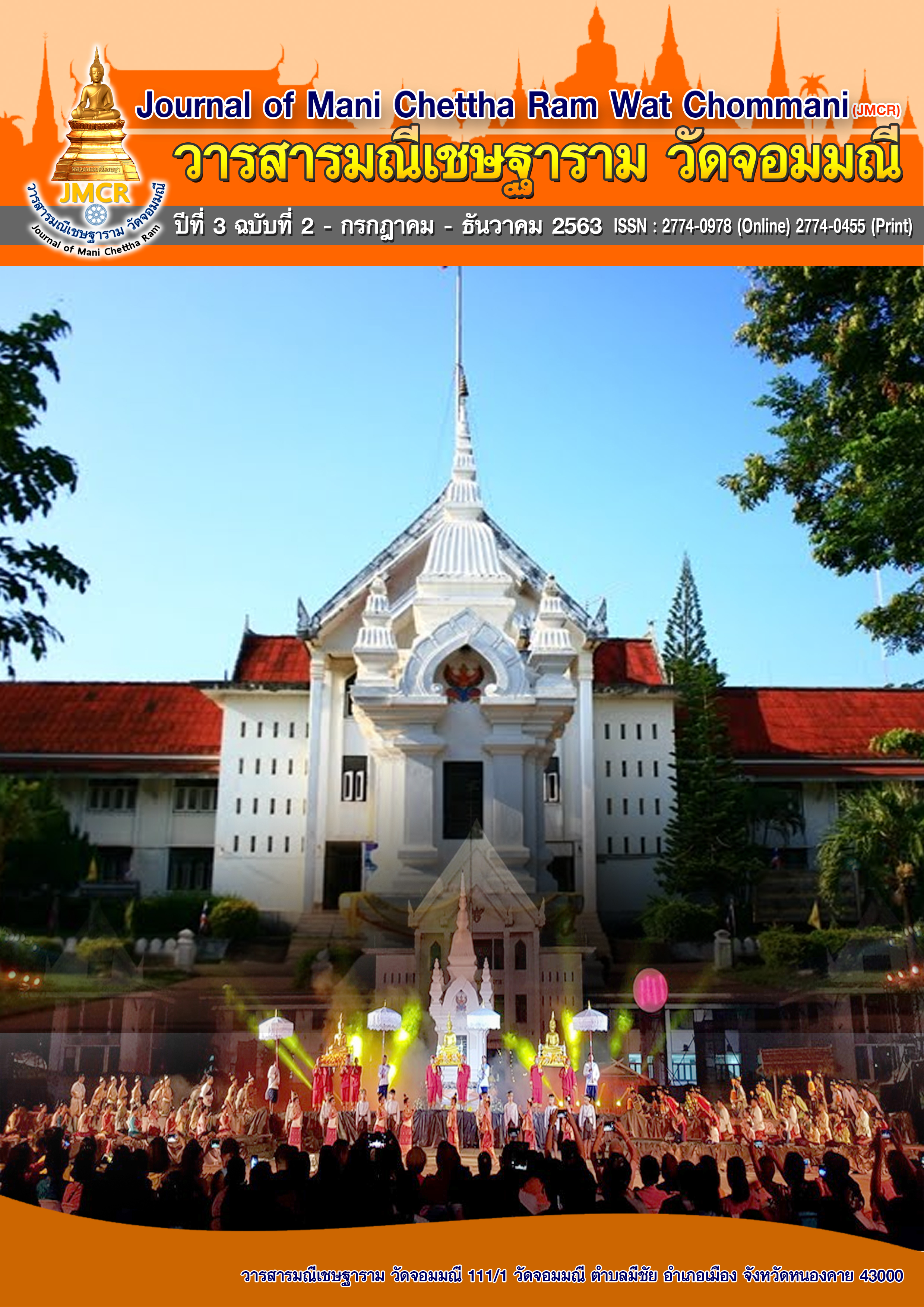Roles of Ecclesiastical Administrative Monks Towards Democratic Administration of the Sangha Council in Chumphae District, Khon Kaen Province
Keywords:
Role, Ecclesiastical Council, DemocracyAbstract
The objectives of the thesis were 1) to study roles of ecclesiastical authoritative monks on democratic administration, 2) to compare roles of ecclesiastical authoritative monks on democratic administration, and 3) to study problematic obstacles and recommendations on roles of ecclesiastical authoritative monks on democratic administration. The population of the research was a total of 157 ecclesiastical authoritative monks in Chum Phae district, KhonKaen, and the samples of the research were 113 monks, selected and calculated by Taro Yamané’s method.
The research findings were as follows: 1) The roles of ecclesiastical authoritative monks on democratic administration were found to be overall at the highest level. Considered in each aspect, they were found to be at the highest level, and, in the descending order of the mean, the administration was found to be at the highest level, followed by the propagation of Buddhism, the study of Buddhism, the construction and renovation, the public welfare, and the welfare education, respectively. 2) The comparison on roles of ecclesiastical authoritative monks on democratic administration was found that the roles of ecclesiastical authoritative monks with different rainy age, different educational levels of the general study, educational levels of Paly Studies, and different ecclesiastical authoritative positions, were different at a statistically significant level of .05. 3) The problematic obstacle on the roles of ecclesiastical authoritative monks on democratic administration was found that monks and novices in the temples did not pay attention to study the Buddha’s doctrine and discipline; the recommendation was that monks and novices in any temple should be reminded to follow the discipline strictly since they agreed to lead their monkhood lives.




